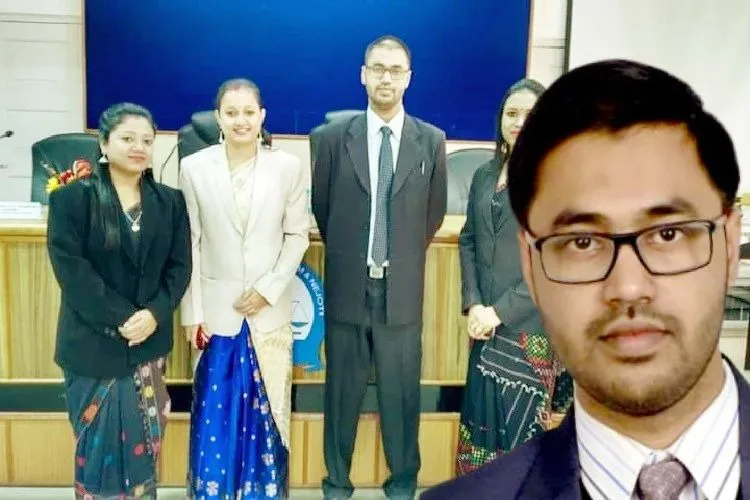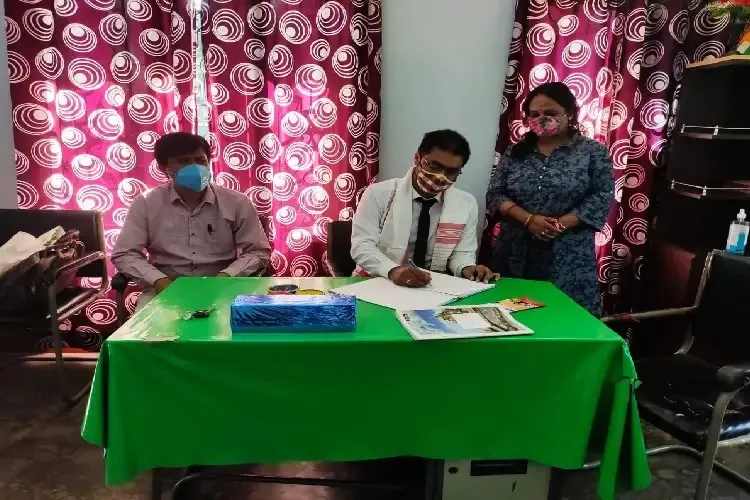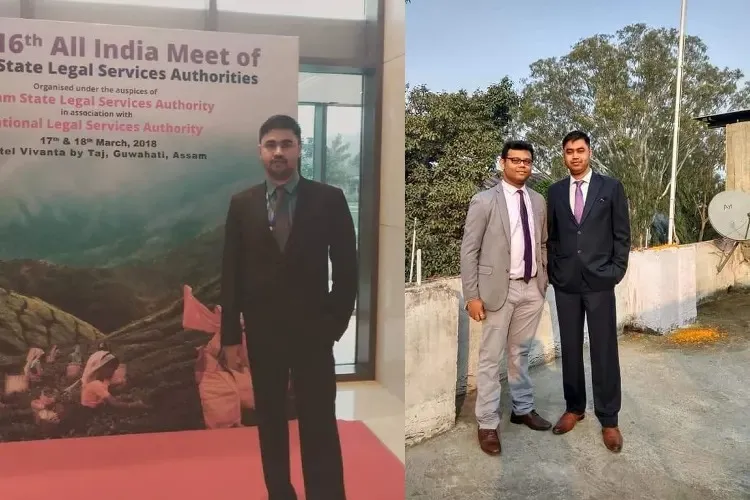Daulat Rahman/Guwahati
Six years after joining the coveted Assam Judicial service, sub-judicial magistrate Sarfraz Nawaz did something unthinkable to most. Six years after joining the coveted Assam Judicial service he left the job to serve the poor caught in expensive litigations and became victims of delayed justice.
Sarfaraz’s rise in career made people see him as a future judge of the high court and Supreme Court. However, to everyone’s shock and surprise, he resigned from the Assam Judicial Service recently when he was posted as the sub-divisional judicial magistrate (M) in Abhayapuri.
He has now drawn a roadmap as to how to extend legal help and all other assistance to poor, marginalized, and illiterate litigants who are caught in court cases and can hardly afford to get justice.
Speaking to Awaz-The Voice, Sarfraz Nawaz said, "It was not an easy decision by any stretch of the imagination. The life of a judge is extremely challenging but I loved it. Judging came naturally to me. I could feel that I was making some difference through my work. I always had a penchant for writing and that was also getting fulfilled. However, at some level, there was always this desire in me to return to practice. I was extremely fortunate to have come across several great lawyers during my stint on the bench. Their sensible yet brilliant arguments and succinct cross-examinations impressed me. Somehow, the desire to be able to do the same was reignited in my heart."
Sarfaraz Nawaz offering free legal service to litigants
At the same time, Sarfraz also began to see that like medical help, legal help is an essential need in society. Every person who faces a charge or is in dispute either with the State or an individual is entitled to his day in Court. However, for a variety of reasons, many people still do not have easy access to the justice delivery system, he said.
"My experience especially in the criminal side has shown me that a large percentage of the people who are incarcerated belong to the poorer sections of the society. Factors like illiteracy, poverty, etc. are behind their plight, I believe, society has also failed them. Many are helplessly unaware of the law and their legal rights. This led me to think and finally decide to leave the judge’s chair and come back to the bar. I realized that I would be more useful to the people on the ground than on the bench," Sarfraz said.
Sarfraz does believe that the last seven years of his life as a judge have given me a fair insight into the functioning of the legal system and its strengths and weaknesses.
"I have always thought of law as a living and a breathing subject that has the potential to change lives. While I was in college, we had set up a legal aid clinic and that introduced me to the idea of providing legal assistance to the needy. After I joined the service, I saw how the Legal Services Authorities have been providing legal aid to people. And at some level, I started feeling that I too have a responsibility towards ensuring that people are not deprived of their constitutionally guaranteed rights," Sarfraz said.
Sarfarz Nawaz attending a Conference
According to Sarfraz the people still have great respect for the judiciary and look up to judges as protectors of their rights. However, they remain apprehensive of approaching the courts; access to justice has not yet been easy for a large population. Judges have been doing a great service but their jurisdiction remains confined to the people who approach the Courts of law. People on the ground still cannot access justice.
"I felt that I could make a larger difference for the people by going to them rather than sitting in court and waiting for them to come to me. I am in the middle of identifying like-minded people who are willing to work on legal awareness and creating a movement whereby we can take the law back to the people. We are working to identify legal issues faced by people. For instance, a large percentage of jail inmates are under-trial prisoners. We are hopeful of working for them- to ensure that they get a free, fair, and quick trial which is their fundamental right.
“The foreigners' issue is a burning issue in Assam but in the name of foreigners, a large number of indigenous people have had to face proceedings in the Tribunals. Most of these people are extremely poor. They need adequate legal representation and assistance. We intend to ensure that no person is condemned without being heard by a Court of law. I am also in talks with people to establish a community-funded and sustained model to provide legal education to its members, especially the school and college-going students," Sarfraz said.



